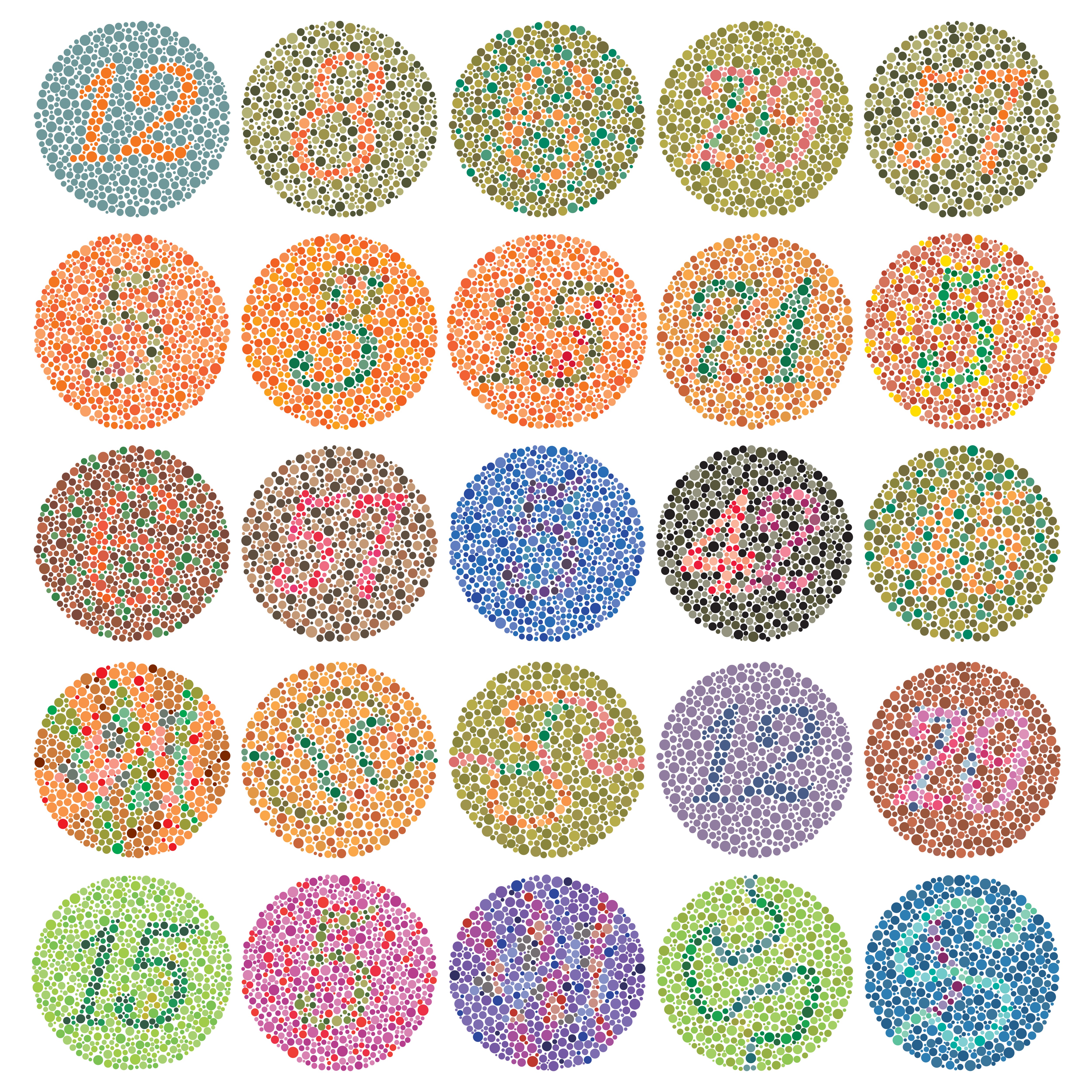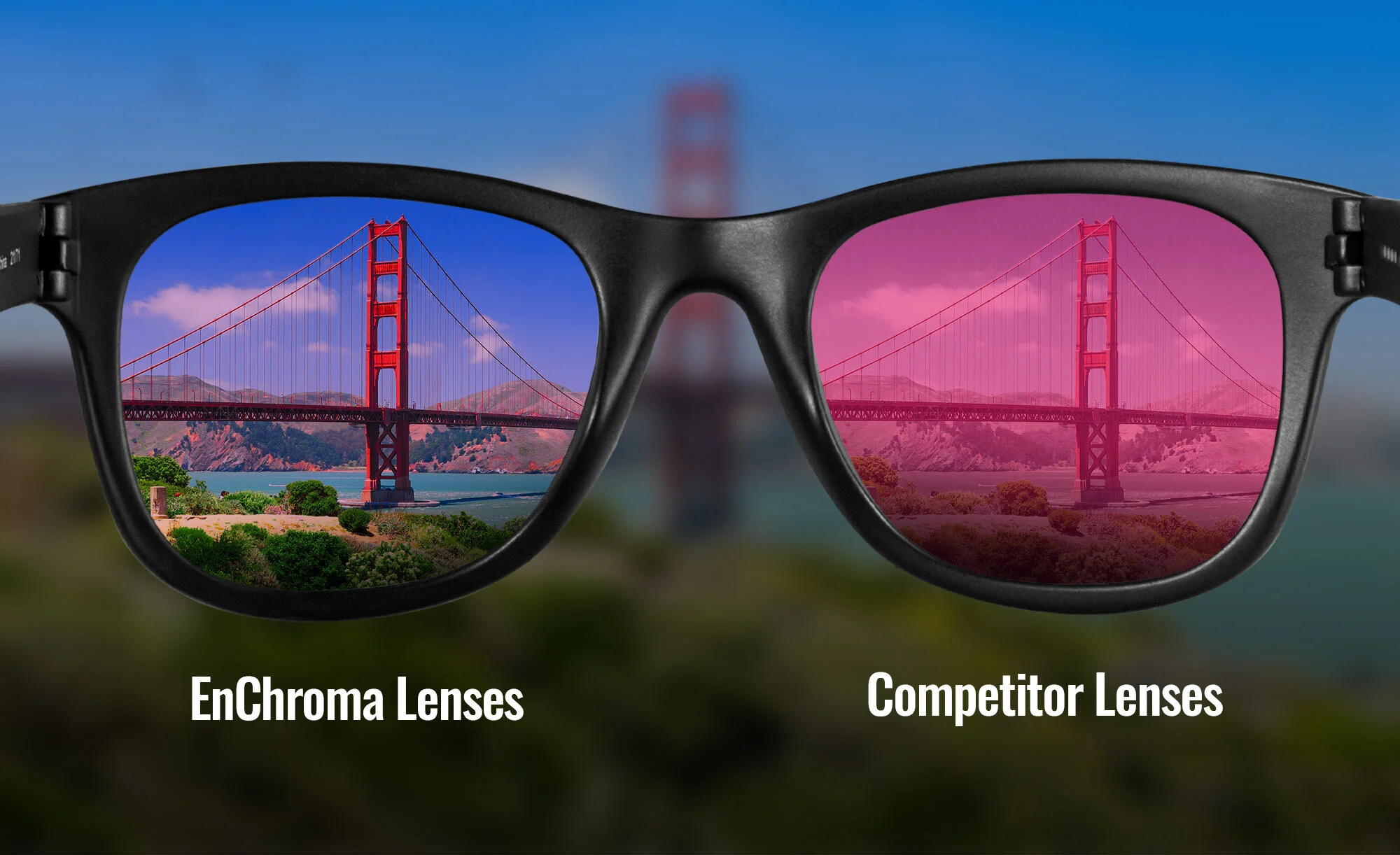Updated on November 25, 2024
How EnChroma Glasses Work to Correct Colorblindness


Vision Center is funded by our readers. We may earn commissions if you purchase something via one of our links.
What are EnChroma Glasses?
EnChroma glasses are a new eyewear technology designed to help people with color vision deficiency see colors they’ve never seen before. Color blindness affects an estimated 8% of males and 1% of females. It typically runs in families and is present at birth.
People with color blindness usually can’t distinguish between greens and reds (deuteranomaly) or blues and yellows (tritanomaly). In rare cases, they can only see in shades of gray (achromatopsia).
Color deficiencies come from cone cells not working correctly. They’re located in the retina.

How Do EnChroma Glasses Work?
EnChroma glasses are embedded with special filters called "spectral notch filters." These selectively block out specific wavelengths of light, specifically the ones that overlap red and green.
These glasses essentially fine-tune the light reaching your eyes, enhancing the contrast between color signals. This allows your brain to differentiate between red and green hues better.
However, they’re not designed to address a blue-yellow color deficiency. EnChroma glasses have both indoor and outdoor lenses. Bright sunlight offers the best color impact, while indoor lenses are designed for low light.
What are the Benefits of EnChroma Glasses
When someone puts on EnChroma glasses, they’ll start seeing vibrant colors pop more. This can help alter a person’s view of the world, improving their ability to do simple tasks such as:
Work and school performance everyone and differs in intensity. It ranges from mild to complete color blindness, which is rare.
- Reading traffic signals
- Color coordination
- Analyzing graphs and maps
- Playing sports

How Much Do EnChroma Glasses Cost?
EnChroma glasses can range from $189 to $400 depending on the style and if they will be used for indoor or outdoor activities. They’re available for children and adults, and they can be customized with an eyeglass prescription.
EnChroma glasses can be purchased online or from one of their 200 independent authorized retailers across the U.S. and Canada. Colorblind glasses are not typically covered by insurance, but vouchers and other discounts are available.

Are Colorblind Glasses Effective?
Colorblind glasses are effective, but they aren’t for everyone with a color vision deficiency. EnChroma glasses work best for people with mild forms of red-green color blindness.
However, colorblind glasses don’t offer an equivalent to natural color vision. Here are a few things you should consider before buying a pair of colorblind glasses:
- They can worsen night vision.
- They’re expensive and may not meet your expectations.
- Contrast-enhancing glasses for hunting and photography are not the same as colorblind glasses.
- Colorblind glasses only work while wearing them. They will not change your photoreceptors.
Listen In Q&A Format
How EnChroma Glasses Work to Correct Colorblindness
Vision Center Podcast
Symptoms of Color Vision Deficiency
The most prominent symptom is having difficulties telling the difference between shades of the same color, such as red and green or blue and yellow. They also tend to struggle with seeing color brightness.
Color vision deficiency is not the same for everyone and differs in intensity. It ranges from mild to complete color blindness, which is rare.
How is Color Vision Deficiency Diagnosed?
Screening for color deficiency is as simple as looking at a few pictures. It’s called the Ishihara color test, and it quickly determines if you have red-green defects in your color vision.
There is no cure for color blindness, but special contact lenses and EnChroma glasses can help people distinguish color and improve their quality of life.
Alternative Treatment Options
In addition to EnChroma glasses, there are other devices and technology that can help correct color vision deficiencies, including:
- Special contact lenses (ColorMax, X-Chrom)
- Computer-based tools (apps, visual aids)
- Gene therapy
Keep in mind that gene therapy is currently under research as a possible technique for correcting the gene responsible for congenital color blindness.ing color deficiency was an unintended benefit of the novel lens technology. They are now designed specifically for people who are color blind.
In this article
9 sources cited
Updated on November 25, 2024
Updated on November 25, 2024
About Our Contributors
Amy, a registered nurse with an M.S. in Nursing from California State University, Sacramento, and a B.A. in Journalism from California State University, Chico, is a freelance health writer for Vision Center. Her unique combination of nursing knowledge and journalism skills enables her to educate readers about eye health effectively. Amy's goal is to merge her nursing experience with her writing talent to raise awareness about common eye conditions and ways to prevent vision loss.
Dr. Melody Huang is an optometrist and freelance health writer with a passion for educating people about eye health. With her unique blend of clinical expertise and writing skills, Dr. Huang seeks to guide individuals towards healthier and happier lives. Her interests extend to Eastern medicine and integrative healthcare approaches. Outside of work, she enjoys exploring new skincare products, experimenting with food recipes, and spending time with her adopted cats.

